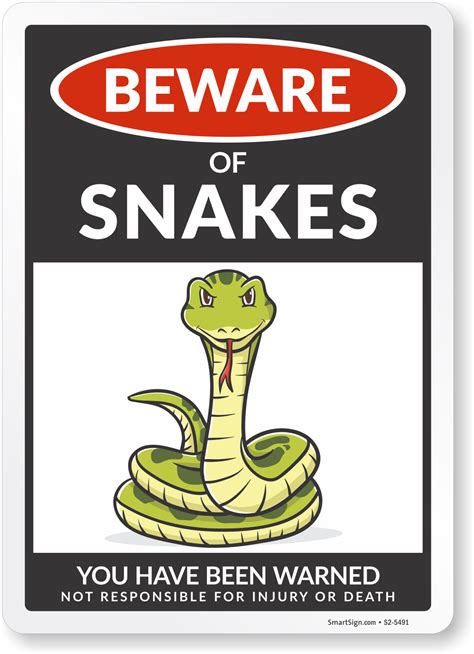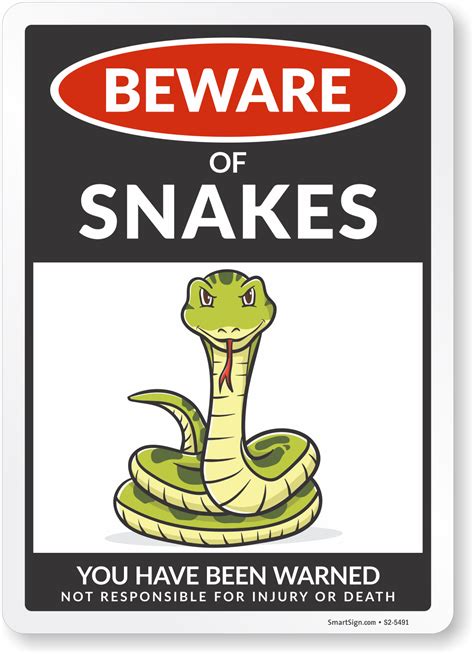
Sweet and spicy scents, particularly those derived from clove and cinnamon, can act as natural snake repellents in residential yards, offering a safer alternative to potentially harmful chemical solutions. Experts suggest utilizing these fragrances in concentrated forms, such as essential oils, or incorporating plants with similar aromatic profiles to deter snakes from entering properties.
Homeowners seeking to keep snakes at bay are increasingly turning to natural methods, with anecdotal evidence and expert recommendations pointing to the efficacy of certain scents. While commercial snake repellents often contain naphthalene, a chemical associated with health concerns, natural alternatives provide a less toxic approach to snake deterrence. “Snakes don’t like strong smells, and certain scents can confuse them, making them want to avoid the area altogether,” explains Scot Hodges, a pest expert from Arrow Exterminators.
Clove and cinnamon are highlighted as particularly effective due to their intense aromas. These scents interfere with a snake’s sensory reception, disorienting them and making them less likely to venture into treated areas.
Methods of Application and Other Recommended Scents
Several methods can be employed to introduce these scents into a yard. One approach involves saturating cotton balls with clove or cinnamon essential oil and strategically placing them around the perimeter of the property, near entry points like doorways and windows, and in areas known to attract snakes, such as wood piles or garden sheds. Replenishing the cotton balls every few weeks, or after heavy rain, ensures consistent scent dispersal.
Another method is creating a homemade repellent spray by diluting the essential oils with water in a spray bottle. This solution can be applied directly to vegetation, rocks, and other surfaces where snakes might hide. Care should be taken to avoid spraying directly onto plants sensitive to essential oils.
Beyond clove and cinnamon, other scents are also believed to repel snakes. These include:
- Cedarwood: Cedar mulch or cedarwood essential oil can be used to create a barrier around the yard.
- Citronella: Known for its mosquito-repelling properties, citronella also appears to deter snakes.
- Garlic and Onion: The strong sulfurous compounds in garlic and onions are thought to be offensive to snakes. Planting these vegetables or using garlic-based sprays might offer some protection.
- Peppermint: Similar to clove and cinnamon, peppermint oil can disrupt a snake’s sensory perception.
The Science Behind Snake Repellents
Snakes primarily rely on their sense of smell and a specialized sensory organ called the Jacobson’s organ, or vomeronasal organ, to navigate their environment and detect prey. This organ, located in the roof of their mouth, allows them to analyze chemical cues collected by their forked tongues. Strong, unfamiliar scents can overwhelm this system, making it difficult for snakes to locate food or feel secure.
According to experts, scents like clove and cinnamon may irritate the snake’s sensory pathways, leading them to avoid the area. While scientific research on the efficacy of specific scents as snake repellents is limited, anecdotal evidence and preliminary studies suggest that strong aromas can indeed deter snakes. More rigorous studies are needed to determine the optimal concentrations and application methods for maximizing the repellent effect.
Creating an Uninviting Habitat
In addition to using scent-based repellents, homeowners can take several steps to make their yards less attractive to snakes. These include:
- Removing Food Sources: Snakes are attracted to areas where they can find food, such as rodents, insects, and amphibians. Eliminating these food sources can significantly reduce the likelihood of snakes entering the yard. This can be achieved by using traps or other pest control methods to manage rodent populations, keeping garbage cans tightly sealed, and removing standing water that can attract mosquitoes and other insects.
- Clearing Debris: Snakes often seek shelter in dark, secluded places. Removing piles of wood, rocks, and other debris eliminates potential hiding spots. Keeping grass mowed short and trimming shrubs and bushes also helps to reduce cover for snakes.
- Sealing Cracks and Openings: Snakes can enter homes through small cracks and openings in foundations, walls, and around pipes. Sealing these entry points with caulk or other materials can prevent snakes from getting inside.
- Managing Vegetation: Overgrown vegetation provides cover and shelter for snakes. Keeping plants trimmed and maintaining a clear perimeter around the house can help to deter snakes from approaching.
- Consider Pets: Free roaming pets like cats and dogs can sometimes deter snakes. Their presence and territorial behavior can discourage snakes from entering the yard.
Commercial Snake Repellents: A Word of Caution
While numerous commercial snake repellents are available on the market, many contain naphthalene, a chemical compound derived from coal tar or petroleum. Naphthalene is known to be toxic and has been linked to health problems in humans and animals. Exposure to naphthalene can cause headaches, nausea, vomiting, and respiratory irritation. Long-term exposure has been associated with more serious health effects, including liver damage and cancer.
Due to these health concerns, experts recommend avoiding snake repellents that contain naphthalene. Opting for natural alternatives, such as scent-based repellents, or focusing on habitat modification is a safer and more environmentally friendly approach to snake control.
Identifying Snakes: Knowing Your Local Species
Before attempting to repel snakes, it’s important to be able to identify the species present in your area. Many snakes are harmless and play an important role in the ecosystem by controlling rodent populations. In some cases, snakes are protected by law, and it may be illegal to harm or kill them.
Learning to distinguish between venomous and non-venomous snakes is crucial for safety. Local wildlife agencies and herpetological societies can provide information and resources on snake identification. If you encounter a snake that you cannot identify, it’s best to leave it alone and contact a professional wildlife removal service.
Professional Snake Removal Services
In some situations, DIY snake control methods may not be sufficient. If you have a persistent snake problem or if you encounter a venomous snake on your property, it’s best to seek professional assistance. Wildlife removal services have the expertise and equipment to safely capture and remove snakes from your property. They can also provide advice on how to prevent future snake infestations.
When hiring a wildlife removal service, make sure they are licensed and insured. Ask about their experience with snake removal and their methods for handling snakes humanely. A reputable company will prioritize the safety of both humans and animals.
Legal Considerations
It’s important to be aware of any local laws or regulations regarding snake control. In some areas, it may be illegal to kill or relocate certain species of snakes. Contact your local wildlife agency to learn about the laws in your area.
If you are considering using traps to capture snakes, make sure to check local regulations regarding trapping. Some areas may require permits or have restrictions on the types of traps that can be used.
The Importance of Coexistence
While it’s understandable to want to keep snakes away from your home, it’s important to remember that they are an important part of the ecosystem. Snakes help to control rodent populations and play a role in maintaining the balance of nature.
Rather than trying to eliminate snakes entirely, it’s often possible to coexist peacefully with them. By taking steps to make your yard less attractive to snakes and by avoiding actions that could harm them, you can help to protect these important creatures.
Detailed Examination of Specific Repellents
Clove: Clove essential oil contains eugenol, a compound known for its strong antiseptic and anesthetic properties. The intense aroma of eugenol is believed to disrupt a snake’s ability to track prey and navigate its environment. Clove oil can be applied to cotton balls, diluted in water for spraying, or even infused into mulch for a longer-lasting effect. When using clove oil, it’s essential to monitor its impact on nearby plants, as high concentrations can be phytotoxic.
Cinnamon: Similar to clove, cinnamon contains compounds with strong aromatic properties. Cinnamaldehyde, the primary component of cinnamon essential oil, is thought to irritate a snake’s sensory receptors, causing them to avoid treated areas. Cinnamon can be used in similar ways to clove, including cotton ball application, spraying, and mulch infusion. Cinnamon sticks can also be placed strategically around the yard for a subtle, yet persistent repellent effect.
Cedarwood: Cedarwood oil and cedar mulch are derived from cedar trees, known for their aromatic wood. The volatile oils in cedarwood are believed to deter snakes by interfering with their sensory perception. Cedar mulch is a popular choice for landscaping due to its aesthetic appeal and natural pest-repellent properties. Cedarwood oil can be used in sprays or applied to cotton balls, similar to clove and cinnamon.
Citronella: Citronella oil is well-known for its mosquito-repelling properties, but it may also deter snakes. The strong citrusy aroma of citronella is thought to be offensive to snakes, causing them to avoid treated areas. Citronella candles, torches, and sprays can be used to create a barrier around the yard. Citronella plants can also be grown in gardens for a natural repellent effect.
Garlic and Onion: Garlic and onions contain sulfurous compounds that are released when they are crushed or cut. These compounds have a pungent odor that is thought to be offensive to snakes. Planting garlic and onions around the perimeter of the yard can help to deter snakes. Garlic-based sprays can also be used to treat specific areas where snakes are likely to be found.
Peppermint: Peppermint oil contains menthol, a compound known for its cooling and refreshing properties. The strong aroma of menthol is believed to disrupt a snake’s sensory perception, causing them to avoid treated areas. Peppermint oil can be used in sprays or applied to cotton balls, similar to clove and cinnamon. Peppermint plants can also be grown in gardens for a natural repellent effect. However, it’s important to note that peppermint can be invasive, so it’s best to plant it in containers to prevent it from spreading.
The Role of Habitat Management in Snake Control
While scent-based repellents can be effective, they are often most successful when combined with habitat management strategies. Creating an uninviting habitat for snakes is crucial for long-term snake control.
Removing Food Sources: Snakes are attracted to areas where they can find food, such as rodents, insects, and amphibians. Eliminating these food sources is essential for preventing snakes from entering the yard. This can be achieved by:
- Rodent Control: Implement a comprehensive rodent control program to reduce the population of rats and mice in the area. Use traps, bait stations, or hire a professional pest control service.
- Insect Control: Control insect populations by eliminating standing water, using insecticidal soaps, and keeping garbage cans tightly sealed.
- Amphibian Control: Reduce the number of amphibians by eliminating standing water, keeping grass mowed short, and removing piles of rocks and debris.
Clearing Debris: Snakes often seek shelter in dark, secluded places. Removing piles of wood, rocks, and other debris eliminates potential hiding spots. This includes:
- Wood Piles: Store firewood in a shed or garage, or cover it with a tarp to prevent snakes from using it as shelter.
- Rock Piles: Remove rock piles or stack them neatly to reduce the number of hiding places for snakes.
- Debris: Remove any other debris from the yard, such as old tires, broken appliances, and discarded building materials.
Sealing Cracks and Openings: Snakes can enter homes through small cracks and openings in foundations, walls, and around pipes. Sealing these entry points can prevent snakes from getting inside. This includes:
- Foundation Cracks: Seal any cracks in the foundation with caulk or concrete patch.
- Wall Openings: Seal any openings in the walls around pipes, wires, and vents with caulk or expanding foam.
- Door and Window Gaps: Install weather stripping around doors and windows to seal any gaps.
Managing Vegetation: Overgrown vegetation provides cover and shelter for snakes. Keeping plants trimmed and maintaining a clear perimeter around the house can help to deter snakes from approaching. This includes:
- Mowing Grass: Keep grass mowed short to reduce the amount of cover for snakes.
- Trimming Shrubs: Trim shrubs and bushes to prevent them from growing too close to the house.
- Clearing Perimeter: Clear a perimeter of at least 3 feet around the house to create a barrier that snakes are less likely to cross.
The Importance of Professional Consultation
While DIY snake control methods can be effective, it’s often best to consult with a professional pest control service or wildlife removal company. These professionals have the expertise and experience to assess the snake situation, identify the species of snake involved, and recommend the most appropriate control methods.
A professional consultation can help to ensure that snake control efforts are effective, safe, and in compliance with local laws and regulations. They can also provide advice on how to prevent future snake infestations.
FAQ Section
Q1: How effective are clove and cinnamon as snake repellents?
A1: Clove and cinnamon, particularly in concentrated forms like essential oils, are believed to deter snakes due to their strong scents. These scents can overwhelm a snake’s sensory system, making it difficult for them to navigate and locate prey, thus encouraging them to avoid the area. While anecdotal evidence supports their effectiveness, more scientific research is needed to confirm optimal concentrations and application methods. Scot Hodges, a pest expert from Arrow Exterminators, notes, “Snakes don’t like strong smells, and certain scents can confuse them, making them want to avoid the area altogether.”
Q2: Are commercial snake repellents safe to use around children and pets?
A2: Many commercial snake repellents contain naphthalene, a chemical known to be toxic. Exposure to naphthalene can cause various health problems in humans and animals, including headaches, nausea, and respiratory irritation, with long-term exposure potentially leading to more severe issues like liver damage and cancer. It is generally recommended to avoid using repellents containing naphthalene, especially in areas frequented by children and pets, and to opt for safer, natural alternatives.
Q3: What are some natural alternatives to commercial snake repellents?
A3: Natural alternatives to commercial snake repellents include using essential oils like clove, cinnamon, cedarwood, citronella, and peppermint. These oils can be applied to cotton balls and placed around the yard, diluted in water for spraying, or incorporated into mulch. Additionally, planting garlic and onions around the perimeter of the yard can help deter snakes due to their strong sulfurous compounds. Habitat management, such as removing food sources and clearing debris, is also an effective natural method.
Q4: How can I make my yard less attractive to snakes?
A4: To make your yard less attractive to snakes, focus on eliminating their food sources and potential hiding spots. This involves controlling rodent and insect populations, removing piles of wood, rocks, and other debris, sealing cracks and openings in foundations and walls, and keeping vegetation trimmed. Managing standing water and maintaining a clear perimeter around the house can also deter snakes from approaching.
Q5: What should I do if I find a snake in my yard?
A5: If you encounter a snake in your yard, it’s essential to remain calm and avoid approaching or handling it. Identify the snake if possible, as many snakes are harmless and play an important role in the ecosystem. If you cannot identify the snake or if it is venomous, contact a professional wildlife removal service. These professionals have the expertise and equipment to safely capture and remove snakes from your property. Additionally, be aware of any local laws or regulations regarding snake control in your area.









